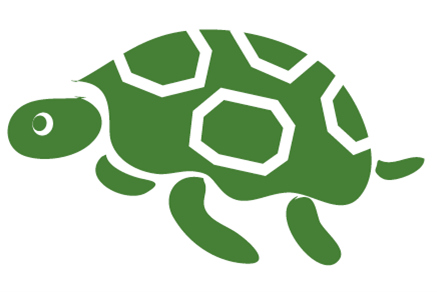PURPOSE
With the Pledge aiming to increase the scale and improve the quality of climate finance for indigenous peoples in tropical and subtropical forests, some indigenous experts and funders saw the need to facilitate an inclusive process with indigenous peoples to assess principles, standards and mechanisms to best support indigenous peoples’ tenure rights and forest guardianship in accordance with the UN Declaration on the Rights of Indigenous Peoples (UNDRIP). Consequently, the Ford Foundation, the Christensen Fund and the David and Lucile Packard Foundation contracted Charapa Consult to facilitate such a process.
The assessment process will be concluded in October 2022. All outputs are made publicly available in English, French and Spanish and distributed broadly.
The assessment process is taking place independently from the Pledge donor group, but the outputs and recommendations of the process will be put forward for consideration by the donor group and can hopefully inform and strengthen ongoing dialogues and negotiations between donors and indigenous peoples and wider stakeholders in the context of the Pledge and beyond.
Read more about the process:
- Information Note about the assessment process Information Note
- Inception Report, specifying scope, methodology and timeline: Inception Report
Methodology
It is essential to ensure that the recommendations emerging from the assessment process are based on indigenous peoples’ experiences and aspirations and reflected broad ownership and agreement. Therefore, a mix of methods and approaches has been applied to reach as many indigenous organisations as possible from tropical and subtropical countries across Africa, Asia and Latin America:. These include:
- Broad distribution of a questionnaire that allowed all interested organisations to share data, experiences and lessons learned;
- On-line interview and focus group discussions with indigenous leaders and organisations ;
- Workshops and events convening key indigenous organisations at global and regional levels
- Broad distribution of all reports and recommendations in draft versions for comments and further input.
The following events and workshops were organised to gather input and recommendations from indigenous peoples:
| WHEN | WHAT | HOW MANY |
| 6 June 2022 | Half-day workshop in the context of Stockholm+50 (with the Tenure Facility) | 13 Indigenous Peoples’ Organisations |
| 4-5 July | Two outreach events during the EMRIP Session in Geneva | 36 IPOs |
| 7-8 July | Regional workshop for Latin America in El Salvador (with Foro Indígena Abya Yala) | 15 IPOs |
| 17-19 July | Two outreach events during APAC, Kigali (with IMPACT) | 56 IPOs |
| 31 July -1 August | Asia regional workshop, Cambodia (with Cambodia Indigenous Peoples Organisation) | 26 IPOs |
| 11-12 August | Workshop for the Amazon region in Bolivia (with COICA) | 9 IPOs |
| 16-18 August | Africa regional workshop, Cameroon (with REPALEAC) | 30 IPOs |
| 25 August | Informal on-line meeting with members of the UNPFII | |
| 18 September | Country-level workshop Bangladesh (with Bangladesh Indigenous Peoples Forum) | 15 IPOs |
Reference Group
An important element of the process is the establishment of a Reference Group, comprising representatives of indigenous peoples and of donors to the Pledge. The role of the Reference Group is to:
- Oversee the process, and provide input to the consultants regarding methodology and outreach
- Assist and participate in focus group or regional meetings
- Assist in ensuring broad outreach and dissemination within their regions/constituencies during and after the consultative process
- Provide comments on draft materials and outputs
- Approve final documents
The members of the Reference Group are:
Indigenous peoples Asia:
- Gam Shimray, Secretary-general, Asia Indigenous Peoples Pact, North-East India
- Rukka Sombolinggi, Secretary-General, Aliansi Masyarakat Adat Nusantara, Indonesia
- Giovanni Reyes, Indigenous Community Conserved Areas Consortium, the Philippines
- Chandra Tripura, Bangladesh Indigenous Peoples Forum, Bangladesh
Indigenous peoples Africa:
- Agnes Leina, Executive Director, Illaramatak Community Concerns, Kenya
- Maimouna Umarou, women’s coordinator of SURA-MAMA, Mbororo Community Development Organization, Cameroon,
- Kenneth Turyamubona, Executive Director, Batwa Community Development Organization; Chairperson of Batwa Pygmies Indigenous Land rights and Advocates Committee, Uganda
- Joseph Itongwa, Executive Director. l’Alliance Nationale d’Appui et de Promotion des Aires et Territoires du Patrimoine Autochtone et Communautaire, Democratic Republic of the Congo; Sub-regional Coordinator, Réseau des Populations Autochtones et Locales pour la gestion durable des Ecosystèmes forestiers d’Afrique centrale. Member of the Global Alliance of Territorial Communities.
Indigenous peoples Latin America:
- Tuntiak Katan, Deputy Coordinator of the Coordination of Indigenous Organizations of the Amazon Basin (COICA); General Coordinator of the Global Alliance of Territorial Communities
- Benito Calixto Guzmán, General Coordinator of the Andean Coordinator of Indigenous Organizations
- Dolores de Jesús Cabnal Coc, Indigenous Women Network on Biodiversity from Latin America and the Caribbean
- Jesús Amadeo Martínez, Main Councilor, Indigenous Council of Central America; Coordinator of Foro Indígena de Abya Yala
Donors:
- Casey Box, the Christensen Fund
- Kevin Curry, the Ford Foundation
- Kai Carter, the David and Lucile Packard Foundation
- Jenny Lopez, Foreign, Commonwealth & Development Office, UKAID
- Caleb Stevens and Vy Lam, USAID
- Maria DiGiano, Gordon and Betty Moore Foundation
Read more about the Reference Group:
Terms of Reference: Reference Group
Minutes of the first Reference Group Meeting, 29th June 2022
Minutes of the second Reference Group Meeting, 24th August 2022
Minutes of the third Reference Group Meeting, 28th September 2022
